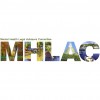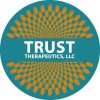When HPRT was founded in December of 1981, the terms and the underlying concept of human rights and refugees did not exist in American medicine. International donors considered refugee mental health to be an unnecessary luxury; it was generally believed that little could be done to restore torture survivors to normal lives.
Attitudes and values have dramatically changed as to the importance of healing the physical, psychological and spiritual suffering of sufferers of extreme violence. HPRT has been at the forefront of this global effort along with many of HPRT's colleagues throughout the world.
Attitudes and values have dramatically changed as to the importance of healing the physical, psychological and spiritual suffering of sufferers of extreme violence. HPRT has been at the forefront of this global effort along with many of HPRT's colleagues throughout the world.
Services
Families found a variety of ways to float away from their flooding homes; some, like this one, were rescued in boats as the water rose in the Lower Ninth Ward after Hurricane Katrina. Photo by Ted Jackson/The Times-Picayune. The Harvard Program in Refugee Trauma has spent 40 years caring for the health and mental needs of survivors of mass violence and torture through a combined practice of clinical experience and medical research.
While events of human violence may occur on just a single day, their impact on survivors and their families and can last a lifetime. The complex multiple effects of extreme violence on human beings demand equally complex methods for discovery and treatment. Observing and caring for the scars of torture on a survivor's body requires different skills than appreciating the inner suffering of a survivor of sexual violence.
HPRT has been training primary care physicians, mental health clinicians, and members of the clergy in the former Yugoslavia since 1995. HPRT has trained over 200 practitioners in Bosnia and Croatia in caring for survivors of mass violence, through a model that is being replicated throughout Bosnia and has been accepted by the region's Stability Pact.
HPRT is currently under a grant from the Office of Refugee Resettlement to provide community-based clinical care for torture survivors residing in Massachusetts. HPRT clinicians are currently working on-site at community health centers and mutual assistance agencies, and with asylum attorneys, screening and evaluating patients, providing consultation/liaison to primary care providers, and offering Health Promotion classes in Khmer.
Immediately after the 1995 earthquake in Kobe, Japan, which left more than 500,000 persons homeless and 5,000 persons dead, HPRT and its Japanese colleagues entered the city to provide assistance. An initial needs assessment led to the development of the first culturally valid screening instrument for Japanese earthquake survivors.
Reviews

Be the first to review Harvard Program Refugee.
Write a Review



